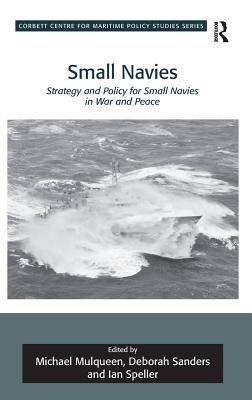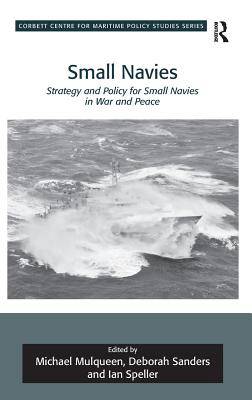
- Afhalen na 1 uur in een winkel met voorraad
- Gratis thuislevering in België vanaf € 30
- Ruim aanbod met 7 miljoen producten
- Afhalen na 1 uur in een winkel met voorraad
- Gratis thuislevering in België vanaf € 30
- Ruim aanbod met 7 miljoen producten
Zoeken
Small Navies
Strategy and Policy for Small Navies in War and Peace. Edited by Michael Mulqueen, Deborah Sanders and Ian Speller
Michael Mulqueen, Deborah Sanders, Ian Speller
€ 343,45
+ 686 punten
Omschrijving
History shows how relatively small naval forces can have a disproportionately large impact on global events. This collection, which adopts an interdisciplinary approach drawing on the best new research from the fields of international relations, security studies, strategic studies and maritime history, addresses the roles and activities of small navies in the past and the present, and investigates the relationship of such navies with non-governmental institutions in pursuit of broader maritime goals, be they political, financial or environmental.
Specificaties
Betrokkenen
- Auteur(s):
- Uitgeverij:
Inhoud
- Aantal bladzijden:
- 266
- Taal:
- Engels
- Reeks:
Eigenschappen
- Productcode (EAN):
- 9781472417596
- Verschijningsdatum:
- 18/03/2016
- Uitvoering:
- Hardcover
- Formaat:
- Genaaid
- Afmetingen:
- 156 mm x 234 mm
- Gewicht:
- 553 g

Alleen bij Standaard Boekhandel
+ 686 punten op je klantenkaart van Standaard Boekhandel
Beoordelingen
We publiceren alleen reviews die voldoen aan de voorwaarden voor reviews. Bekijk onze voorwaarden voor reviews.







